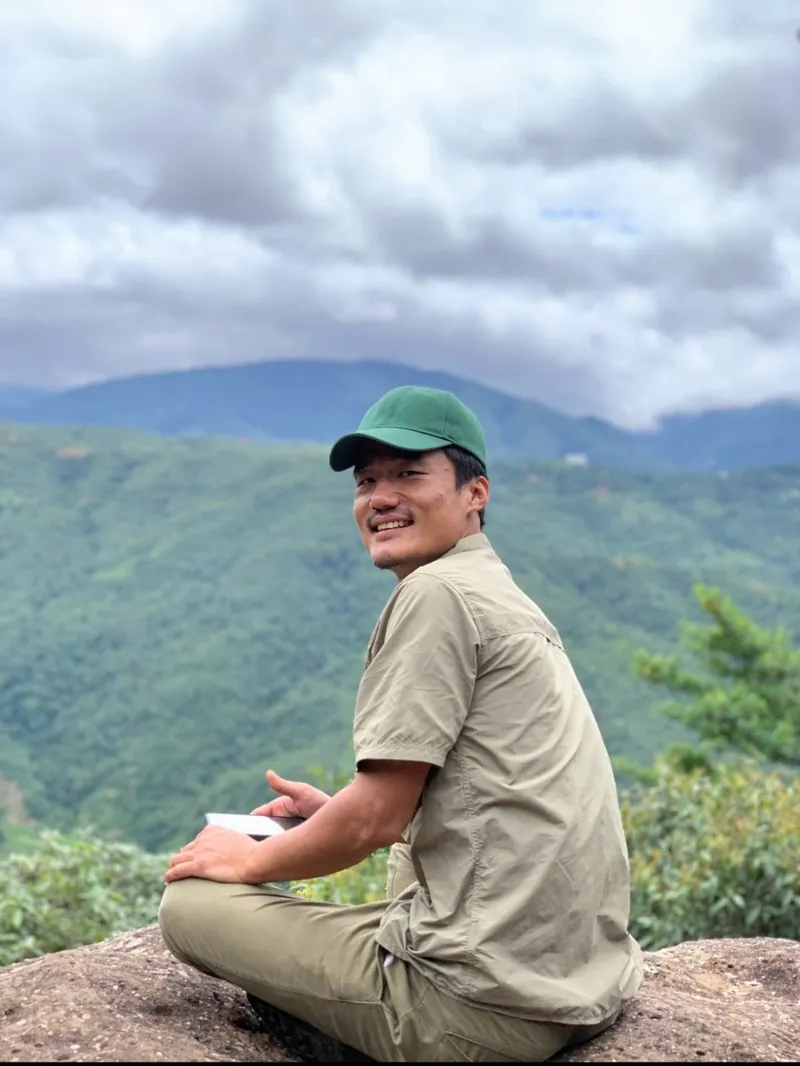In the remote hills of Nagaland’s Tseminyu district, 47 km from the state capital of Kohima, one man’s conservation efforts centre around ‘Kenono,’ which in the local dialect translates to ‘come together and support each other. This is the philosophy on which Ruchinilo Kemp started the Kenono Foundation in 2022, a non-profit that integrates environmental conservation with community empowerment. It works towards conserving biodiversity and supporting forest-dependent communities.
What started as a response to his community’s call for help has evolved into a movement that has directly impacted over 2,400 households (11,280 people) across 10 villages in Nagaland, covering approximately 7,000 hectares of community conserved areas (CCAs), and engaged over 128 villages and 30 community forest sites through its biodiversity community portal documentation and sensitisation efforts.
<figure class="image embed" contenteditable="false" data-id="573683" data-url="https://images.yourstory.com/cs/5/8e7cc4102d6c11e9aa979329348d4c3e/WhatsAppImage2025-05-30at10-1748661160723.jpeg" data-alt="kenono foundation" data-caption="
Ruchinilo Kemp started the Kenono Foundation in 2022
” align=”center” readability=”1″> Ruchinilo Kemp started the Kenono Foundation in 2022
After completing his master’s in development studies at IIT Guwahati, Kemp joined SBI’s Youth for India Fellowship, developing an app to connect farmers in Rajasthan with agricultural experts. It underscored the importance of sustained community engagement for far-reaching effects.
“I realised that there is just an information overload during and after the training. Once it ends, the farmers would find it difficult to follow up,” Kemp says.
This insight helped him focus on long-term community relationships over one-off interventions.
After his fellowship, Kemp spent five years with Seva Mandir in Rajasthan, which deepened his understanding of grassroots development work.
Community-led conservation efforts
It wasn’t until 2020 that his community in Nagaland called him home to help establish a community initiative.
The community had already established Zunpha MPCS Limited, a social enterprise that needed professional guidance. However, it became clear that addressing larger collective issues required a different approach.
“When I decided to work in Nagaland, I decided to focus on conservation because here people are dependent on forests, and their sustenance and management are central for any sustainable development. If you are to work on the environment and conservation, one person alone cannot do it, everyone has to come together and work on a common purpose,” Kemp emphasises.
Rather than imposing external solutions, Kenono works on strengthening existing community practices while building new capacities.
“We have collaboratively developed a portal along with other organisations where we can document the best practices and the existing practices that the community uses around conservation,” explains Kemp.
Promoted by Zunpha MPCS Limited, Kenono Foundation’s work spans three key areas: documentation of indigenous conservation practices, sustainable community-conserved area management, and biodiversity education.
The foundation has partnered with organisations to create management plans and enterprise opportunities, including a coffee initiative that ensures farmers have an assured market and better price for the coffee. It also runs a community-led cooperative enterprise that employs over 47 women and youth.
It has also invested in building a biodiversity education centre where community elders share traditional and indigenous knowledge with the younger generations through interactive sessions.
The foundation has reached 354 children, youth and community leaders through nature-based education programmes that take learning outside the classroom. “These are interactive sessions where students go out and experience and learn from nature,” says Kemp.
Challenges and resilience
<figure class="image embed" contenteditable="false" data-id="573684" data-url="https://images.yourstory.com/cs/5/8e7cc4102d6c11e9aa979329348d4c3e/WhatsAppImage2025-05-30at10-1748661223249.jpeg" data-alt="Kenono" data-caption="
The foundation has reached 354 children, youth and community leaders through interactive nature-based education programmes that take learning outside the classroom
” align=”center” readability=”2″> The foundation has reached 354 children, youth and community leaders through interactive nature-based education programmes that take learning outside the classroom
Kemp admits that building a foundation from scratch in rural Nagaland has been challenging, with the most significant challenge being financial sustainability.
Kemp admits, “There have been times when we were not able to pay our staff. It was a difficult journey, but what kept the team together wasn’t just financial motivation but a commitment to a larger impact. They understand that what we are doing is going to have larger relevance and greater impact in the community.”
A grant from SBI Foundation was the initial funding to start Kenono Foundation. Through its operational support to Zunpha MPCS Limited, it has been able to receive resources to manage some of its programmes.
Today, Kenono Foundation’s work across 128 villages focuses on documentation and building youth capacity for biodiversity mapping. The foundation has an innovative approach to creating evidence for community conservation impact.
“We do a lot of camera trapping, monitoring, and biodiversity mapping where we can build, gather evidence, to show that where communities have been conserved, the biodiversity is good,” explains Kemp.
The foundation is also a steering committee member of the World Conservation Monitoring Centre, part of the UN Environment Programme, which works on advocacy and policy.
One of Kenono Foundation’s most significant achievements has been influencing policy dialogue.
“There is a growing awareness about the importance of community-conserved areas, and the state government is also now thinking seriously about developing a community-conserved area policy for the state,” says Kemp.
Looking ahead, Kemp envisions creating sustainable forest landscapes where communities conserve the forest and are also able to fund some of their forest management activities through local resources. The foundation is developing social enterprises in coffee and responsible tourism to make this a reality.
As climate change and biodiversity losses intensify worldwide, the Kenono Foundation presents a powerful example of community-led conservation. The foundation emphasises that a forest is not merely a resource—it is an identity.
Without such an approach, there is a looming threat of water scarcity, disrupted livelihoods, and disproportionate impacts on marginalised communities, cautions Kemp.
To this end, his perspective and goals are long-term.
Kemp’s reflection on the nature of the foundation’s work captures this long-term perspective: “We know that the real result may come after 20 years. I am willing to dedicate a lifetime to that result.”
